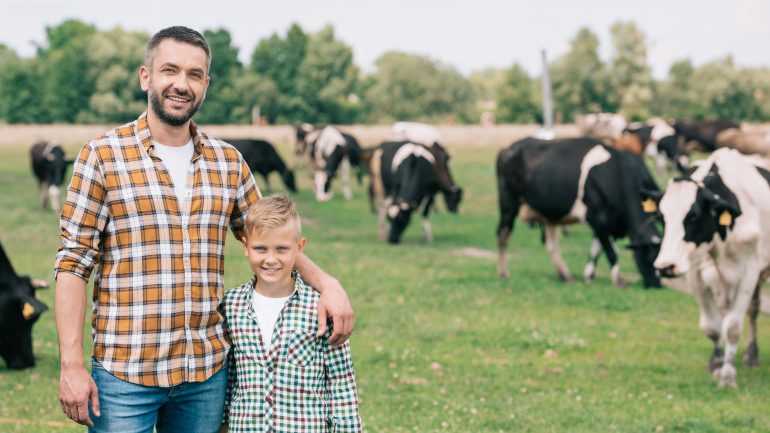Whereas most people go on vacation in the summer, for farmers it is the busiest time of the year. Hay needs to be baled, calves and heifers need to be fed, and cows need to be put out to pasture and milked twice a day. During the months of July and August, farmers in the Netherlands literally work from dawn to dusk. Now, besides it being the busiest time of the year, farmers have drawn the public’s attention to other important development. As they are not usually known as social media influencers and Instagram-savvy folk, farmers have literally taken to the streets blocking major highways, instigating traffic jams, camping with their tractors on Dam Square in Amsterdam, and stalking the homes of leading politicians such as Christianne van der Wal, the minister of Nature and Nitrogen. If that did not get the public’s attention, farmers started obstructing the entrance to food distribution centers, causing major shortages of fresh vegetables and dairy products in supermarkets throughout the Netherlands.
Nitrogen: a big problem
What are farmers – usually considered the backbone of society – so upset about? It’s all about the Dutch government’s plan to radically reduce nitrogen emissions by 2030. The greatest polluter of nitrogen on farms is animal excrement (cow, pig, and chicken manure). Animal dung is high in nitrogen and is released either into the air or into the soil, and eventually into the ground water. Of course, nitrogen is a natural substance, but too much is detrimental for many natural fauna and flora, including butterflies, whose populations are slowly disappearing in the Netherlands. To reduce the amount of nitrogen, as stipulated in the Natura 2000 plan, a drastic downsize of cattle herds and even government buy-out of some farmers is necessary. With more than 20,000 farmers in the Netherlands today, a far-reaching reduction of herd sizes and in some cases the removal of some farms altogether will have grave consequences on rural communities throughout the country.
Although many farmers understand the government’s policies and the need to save the environment, the killer sting for farmers is that, until now, agriculture is the only sector of the economy that has been singled out, while major nitrogen polluters – including the industrial sector and traffic – have been left alone. Nevertheless, far-reaching plans are in the pipeline and will be revealed in the next six months.
Natura 2000 plan
In the ambitious Natura 2000 plan, an EU plan which aims to preserve natural reserves throughout Europe, the government’s measures entail making three quarters of all the natural reserves in the Netherlands nitrogen-free, or at least being significantly less affected by excess nitrogen emissions. To achieve this goal, the Netherlands will have to reduce its current nitrogen emissions by at least 50%. With the aid of a 25-billion-euro fund, the national government has allocated the responsibly of making the reductions to the individual provinces, who can tailor-make their own resolutions.
However, many farmers feel as if the government is robbing them of their livelihood and believe policymakers in The Hague do not appreciate the agricultural sector in general, even though in the last few years the sector has already made great sacrifices and huge investments to improving livestock stables and reduce emissions. Moreover, farmers believe they are getting the short end of the stick, as there is also a significant price discrepancy between how much a farmer gets paid for their products, such as a liter of milk (€0.46) versus the price the supermarket charges the consumer (€1.26).
Most importantly, farmers argue that the government does not understand that becoming a farmer is not like becoming an accountant or any other occupation. Nobody just studies agriculture and then instantly become a farmer. Most farmers are born into farm families, and the farm is passed down from one generation to the next. It’s just not an occupation, it’s a family tradition. It’s a way of life.
Written by Benjamin B. Roberts
